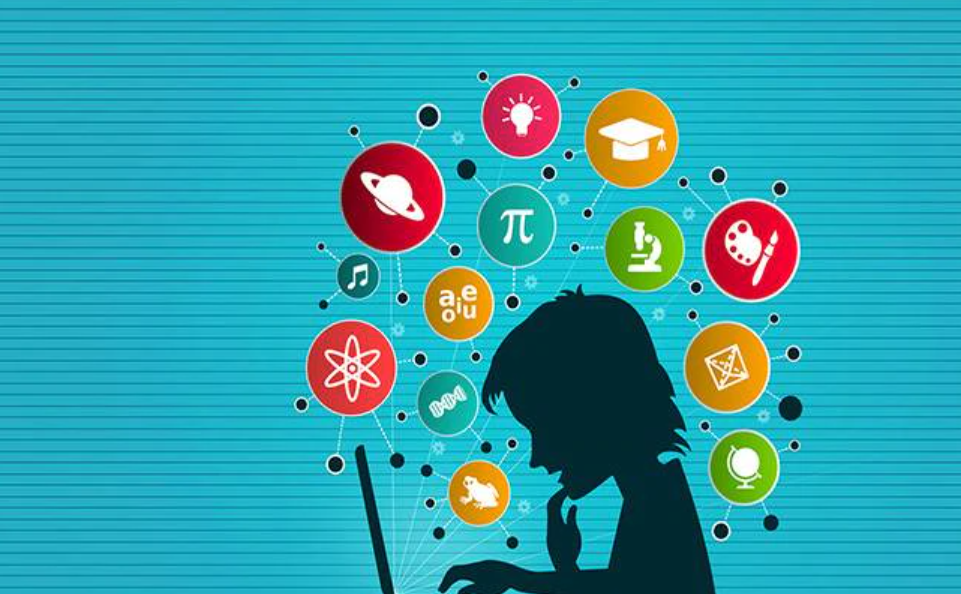
Due to recent worldwide events, online learning has become commonplace among schools and universities. Since the modality is generally more convenient and less expensive than traditional classes, it was well-received in the education sector by students and educators alike.
According to Straighterline, online learning is also ideal for students with other obligations, such as those with part-time jobs and family responsibilities, as it demands less time and commitment. Furthermore, it allows individuals that are behind in terms of mathematical prowess to catch up to their peers.
However, this modality also carries several challenges, especially when it comes to more technical subjects, like science and mathematics. So, if you’re planning to learn mathematics online, it’s best if you know what you’re dealing with. On that note, here are six challenges you’re bound to face when learning mathematics online:
Table of Contents
1. You Must Be Technologically Literate

Online learning generally requires one to have a background on how modern technology works, specifically, the Internet. After all, it would be the primary medium for online learning.
That’s why before you can take an online course in mathematics from any platform, you must first figure out how to navigate through different parts of the Internet. But that’s not to say it would be difficult. In fact, it doesn’t take much to be technologically literate. Considering that you’ve already managed to find this article, you should already have a general idea of how to browse for websites, and that’s pretty much all you need to know.
Furthermore, learning mathematics online typically means taking an online course from a specific provider. Since that’s the case, you only need to know how to navigate to their platform, and you’re pretty much set. However, if you don’t plan on taking any online math courses, you probably have to steel yourself as you’re bound to encounter numerous challenges along the way.
2. Helpful Lessons Are Difficult To Find

When attending a university, educators would often teach mathematics in an organized manner, especially since they follow a systematic lesson plan. That, however, doesn’t apply to online learning. If you’re planning on learning mathematics online, you should expect to find lessons by yourself. While being technologically literate would indeed help make the search for mathematics lessons a lot more manageable, it still remains a challenge.
For starters, most platforms may not offer the specific lesson you need. For instance, if you’re looking for lessons on derivatives, you might find lessons on logarithmic functions instead. Simply put, if you intend to learn mathematics online, you shouldn’t expect to find exactly what you’re looking for.
Of course, you always have the option of signing up for online courses from learning providers. These courses typically consist of numerous lessons, so the chances of meeting your standards are high, but these courses often come at a price. Even then, you can’t be sure these courses would fit your learning style.
3. Online Content Can Sometimes Be Erroneous

Online content has always had the possibility of being erroneous. After all, most of the information you’ll find on the Internet has been recycled repeatedly. Throughout its life cycle, people are bound to make mistakes, hence the possibility of errors.
With that said, you can’t guarantee that the contents of a math lesson are 100% true. Therefore, you’d have to spend a good amount of time and effort checking if the contents are legitimate and without discrepancy. One way to do this is by verifying the contents of the lesson by referring to a different source, but that too raises an issue.
4. Lessons From Different Sources May Contradict Each Other

When searching for a specific topic on mathematics, you’ll see countless results on your search engine. Each of these results is likely to have similar content. Naturally, there will be some differences here and there, such as how the information is presented. But, oftentimes, you’ll stumble upon sources that outright contradicts the information provided by other sources. For example, one website may have a different formula from another website.
These contradictions can lead to confusion as to which is correct and which is false. Of course, you can always cross-check the information using more sources, but the fact that you have to double-check every piece of information would have a negative impact on your learning experience.
5. Online Math Courses May Not Suit Your Learning Style

Most online courses are designed to accommodate as many individuals as possible. That’s why online lessons often follow a common pattern. Unfortunately, if your learning style is somewhat different from your average joe, you might find it difficult to relate to the pattern of most math lessons. This, in turn, would make the search for online lessons a lot harder. This is even more of a case for technical subjects like mathematics as there are countless different approaches on this subject.
That’s not to say the lessons would be unbearable. You can still learn from these lessons as long as you have to ability to adapt to such an incompatible learning style.
6. You’re Bound To Encounter Technical Issues

When learning mathematics in an online environment, you’re bound to experience all sorts of technical issues. Perhaps your device is too slow to open several programs at once. Maybe your internet connection is too slow to open numerous tabs on your browser. You might also encounter some problems with your browser.
Regardless, these things are bound to disrupt your concentration and focus, which contributes to a poor learning experience.
Takeaways
As convenient as online learning may be, it’s far from being the perfect learning modality, especially when it comes to subjects that require focus and commitment, like mathematics.
For one, you can’t engage in online learning and expect to succeed if you’re not knowledgeable of the Internet. Math lessons are also not as accessible as you may think–you’d have to spend at least a few hours looking for the perfect resources. But even after finding lessons, you can’t guarantee that these resources are helpful. For all you know, they might be erroneous or incompatible with your learning style. Plus, you’re bound to encounter technical issues that would disrupt your learning experience.
Nevertheless, if you manage to succeed in this endeavor, you can easily surpass your peers in terms of mathematical prowess.







